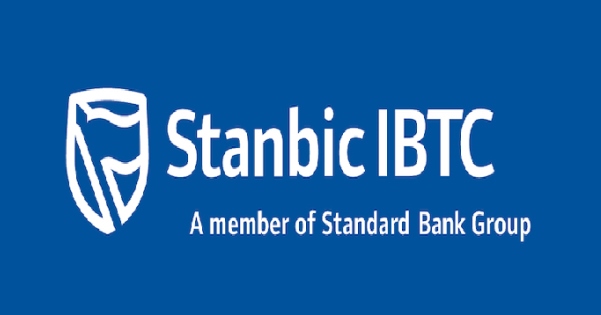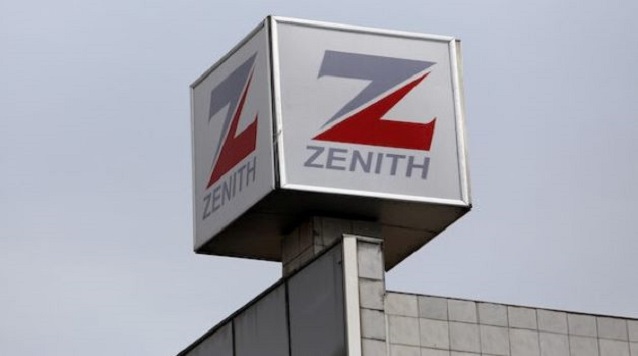E-Financial
Stanbic IBTC Moves to Achieve Net-zero Emission

Stanbic IBTC Holdings PLC, a member of Standard Bank Group, said it has commenced initiatives to achieve net zero emissions as the bank commits to facilitating a better and more sustainable future for all.

This was contained in a sustainability webinar tagged “Working Towards Net Zero Emissions”, organised by the Group on Monday.
Delivering his opening remark at the event, Dr. Demola Sogunle, Chief Executive, Stanbic IBTC Holdings PLC said: “We all cannot continue to ignore our responsibility in the current changes to the climate.
“Through small adjustments leading to a more conscientious and sustainable lifestyle, each one of us can take part in the global climate protection project.
“As reflected in one of our strategic value drivers SEE (Social, Environmental and Economic) Impact, Stanbic IBTC is focused on ensuring it does business responsibly whilst positively impacting the society and environment where we operate.
“As such, the 2021 Stanbic IBTC Sustainability Week is an opportunity for us to advance awareness around practical steps we are taking, and more which we can take, to make our world a better place.”
The webinar featured seasoned experts including Temesoye Jack, Group Head, Sales, Banks, Gas Stations and SMEs, Starsight Energy; Professor Kenneth Amaeshi, Chair in Sustainable Finance and Governance at the European University Institute (EUI) and Oluwasegun Olajuwan, Group Chief Executive Officer, THLD Group.
Temesoye Jack stated that renewable energy sources like solar energy can help countries attain net zero emissions. She said: “Solar energy can help us move towards reducing greenhouse emissions. We need to have more energy efficient offices nationwide. However, this shift will not happen overnight as it is a gradual process.”
She explained that Nigeria has barely scratched the surface when it comes to renewable energy and emphasised that sustainable practices do not have to end in the office but must be observed in all areas of the country
Prof. Kenneth Amaeshi highlighted the importance of harmonising technology upgrades and sustainable growth to reduce carbon emissions. He explained that sustainability at the global level is targeted at mitigating the adverse effects of climate change.
According to Prof. Kenneth, “From recent surveys, it is clear individuals are ready to go green. The affordability of clean energy will determine if we will be able to reduce carbon emissions.”
Speaking on practical steps that can be adopted to help in achieving net zero emissions, Oluwasegun Olajuwan, Group Chief Executive Officer, THLD Group, said “Autogas has been around for 40 years, and Nigeria is not fully embracing it. It is safer, cleaner and more cost effective than fossil fuel and diesel.
Vehicle conversion from fuel to Autogas is affordable. CNG (Compressed Natural Gas) is more efficient than fuel. The use of CNG in vehicles mitigates the emission of nitrous oxide and hydrocarbons by 40% and 90% respectively, compared to petrol.”
Omolola Fashesin, Head of Sustainability at Stanbic IBTC, thanked the panellists for the informative session, which helped create awareness of alternative sources that can help reduce carbon emissions. She urged the participants to apply learnings from the webinar to take practical steps to reduce their carbon footprint.
Finally, in his closing remarks, Kunle Adedeji, Executive Director Finance and Value Management stated that “at Stanbic IBTC, we are committed to facilitating a better and more sustainable future for all.
“We have already commenced various workstreams that will help us on the journey towards Net Zero emissions.
“Some of these include understanding our energy sources, consumption patterns and possible areas for efficiency; adoption of cleaner energy sources in our office locations (leveraging Autogas and Solar energy solutions); and adoption of Tree Planting programs which will help us with carbon sequestration.”
E-Financial
Zenith Bank Gets Regulatory Approval for Full Takeover of Paramount Bank

Zenith Bank, Nigeria’s second biggest lender by market value, has received approval from the Competition Authority of Kenya (CAK) to acquire 100 percent of Paramount Bank Limited, clearing a key regulatory hurdle in its East African expansion drive.

In a statement on Thursday, CAK said the transaction is “unlikely to lead to a substantial prevention or lessening of competition in the market for the provision of banking services in Kenya” and would strengthen Paramount’s financial position, helping it meet enhanced core capital requirements over the long term.
The Kenyan regulator noted that the deal poses no risk of reduced competition in the country’s banking sector. Zenith currently has no banking operations in Kenya, while Paramount is a Tier III lender with a modest 0.2 percent market share.
“The approval is based on the Authority’s determination that the transaction is unlikely to harm competition, while any negative public interest concerns regarding employment can be addressed through mitigating remedies,” CAK added.
Paramount met the Central Bank of Kenya’s KSh3.0 billion core capital requirement in November last year, reporting KSh3.118 billion after raising KSh332 million from shareholders, according to Mwango Capital, a Nairobi-based research firm.
The deal reflects a broader shift among banks in East Africa’s largest economy as lenders seek growth opportunities beyond increasingly saturated home markets marked by weak credit expansion, rising regulatory costs, and intense competition.
While several global banks — including Standard Chartered and HSBC — have scaled back African operations over the past decade, Zenith’s move signals confidence in selective regional expansion, particularly in East Africa, where economic growth and financial inclusion trends remain supportive.
The banking group is also widening its continental footprint. Last month, the lender disclosed plans to expand into Ethiopia, Africa’s second most populous country, as it targets generating up to half of its profits outside Nigeria over the medium term.
Historically, Nigeria, the continent most populous nation contributed as much as 90 percent of the bank’s earnings, a dominance that is now gradually easing.
Data cited by The Africa Report show that profit contributions from foreign subsidiaries rose to 27 percent in the first nine months of 2025, up from 14 percent in 2024.
Nigeria’s banking recapitalisation drive is also pushing large lenders such as Zenith to deploy capital beyond their home market. In January 2025, Zenith — which holds an international banking licence — raised N350.4 billion ($242 million), lifting its paid-up capital to N614.6 billion ($425 million).
With higher capital buffers in place, banks are reassessing how best to deploy fresh funds as domestic earnings normalise following two years of windfall gains.
As part of the approval, Zenith has been required to retain Paramount’s 78 employees for at least 12 months after the transaction is completed.
The bank is listed on the Nigerian and London stock exchanges and operates across corporate, commercial, retail, and investment banking. Its international subsidiaries span the United Kingdom, Ghana, Sierra Leone, Gambia, the UAE, and China.
E-Financial
Court Jails Ogiemwonyi, Stockbroker for Theft of $80,000, N953m Shares Proceeds

Victor Ogiemwonyi, a Lagos stockbroker, and Partnership Securities Limited, his company, have been convicted for allegedly stealing shares worth N953 million and $80,000 belonging to one Mr. Arnold Onyekwere Ekpe, a former managing director of Ecobank Transnational Incorporated (ETI).

Ogiemwonyi was convicted after he was found guilty of two-count charges bordering on stealing, contrary to Section 285(1), (9) (b) and (c) of the Criminal Law of Lagos State, 2011 slammed on him by the Economic and Financial Crimes Commission (EFCC).
Ekpe, through Messrs Margaret Onyema, his counsel, has sometimes in October 2016 in a petition to the EFCC alleged that he instructed the defendants to sell his 96,077,872 units of Ecobank Transnational Incorporated (ETI) shares, which were sold at the rate of N1,296,885,311.02.
But he said out of the proceeds of the sale, the stock broker paid only N300,000,000.00 to him while he dishonestly diverted the balance for personal use.
Following investigations, the defendants were charged with two counts of stealing.
Count one reads:
”Victor Ogiemwonyi and Partnership Securities Limited between the months of June, 2016 and September, 2016 at Lagos within the jurisdiction of this honourable court dishonestly stole the sum of N953, 535,861.57 (Nine Hundred and Fifty Three Million, Five Hundred and Thirty Five Thousand, Eight Hundred and Sixty one Naira Fifty Seven Kobo) being part of the proceeds of sale of 96, 077, 872 Ecobank Transnational Incorporated Shares, property of Mr. Arnold Onyekwere Ekpe”.
Count Two reads:
“Victor Qgiemwonyi and Partnership Securities Limited sometime between June, 2016 and July, 2016 at Lagos within the jurisdiction of this honourable court dishonestly stole the sum of USD$80,000.00 (Eighty Thousand United States of America Dollars) which formed part of the accrued dividends on 96, 077,872 Ecobank Transnational incorporated Shares, property of Mr. Anold Onyekwere Ekpe”.
At trial, the prosecution, led by Ola Sesan, called five witnesses and tendered 67 exhibits, all of which were admitted and marked by the court.
The defence, on its part, called three witnesses, including the first defendant.
Delivering judgment on Wednesday, Justice Modupe Nicole-Clay of the Lagos State High Court sitting in Ikeja, Lagos convicted Ogiemwonyi and his company, Partnership Securities Limited, guilty on all counts.
The court sentenced the first convict to pay a fine of N10 million, while the second convict was ordered to pay a fine of N20 million.
Also, the court directed the convicts to pay back the entire money stolen from the petitioner, both in naira and dollars.
Recall that Securities and Exchange Commission, SEC, had in 2017 banned Victor Ogiemwonyi, from operating in the capital market for life over alleged unprofessional conduct in the Nigerian capital market.
He was also banned for life from holding directorship position in any public company in Nigeria.
He was also ordered to pay a penalty of N100,000.
SEC said Ogiemwonyi was banned after he was found guilty of breaching Rule 1(iii) of the Code of Conduct for Capital Market Operators and Their Employees as contained in its Rules and Regulations made pursuant to the Investments and Securities Act 2007.
The ban also followed petition by EFCC to SEC accusing Ogiewonyi of misappropriation of about N1.24 billion, $80,000.00, stealing and dishonest conversion of proceeds of share sale belonging to an investor.
It was alleged that he used his company to dupe over 300 investors over N4.8 billion with Arnold Ekpe a former Managing Director of Ecobank Transnational Incorporated, ETI, being one of his victims.
E-Financial
FCCPC Delists Non-Compliant Digital Lenders Post-January 5 Deadline

Federal Competition and Consumer Protection Commission (FCCPC) has commenced enforcement actions against Digital Money Lending (DML) operators that failed to regularise their operations under the Digital, Electronic, Online and Non-Traditional Consumer Lending Regulations, 2025 (DEON Regulations).

FCCPC
The commission withdrew the conditionally approved status of non-compliant DML firms and removed them from its official register of approved digital lenders, effective immediately after the January 5 compliance deadline.
FCCPC Executive Vice Chairman and Chief Executive Officer, Mr Tunji Bello, announced the measures on Wednesday, emphasising their role in upholding regulatory standards and ensuring certainty in Nigeria’s digital lending sector.
Mr Bello stated that the compliance window provided under the DEON Regulations, which took effect on July 21, 2025, had closed, paving the way for fair, orderly and due process-driven enforcement.
He noted that the actions target persistent issues such as exploitative loan recovery tactics, data privacy breaches, harassment of borrowers and anti-competitive practices that have plagued the sector.
The DEON Regulations, issued on September 3, 2025, under the Federal Competition and Consumer Protection Act 2018, mandate all non-bank digital lenders to register, adhere to fair interest rates, ethical debt recovery and robust data protection measures.
Non-compliance now attracts severe penalties, including fines up to N100 million or one per cent of annual turnover, operational restrictions, app store delistings and potential director disqualifications for up to five years.
As of late 2025, the FCCPC had granted full approval to 438 digital lending companies, with recent data indicating over 521 firms now under regulatory scrutiny post-deadline.
The commission’s phased crackdown involves collaboration with the Central Bank of Nigeria, Google and Apple for account freezes and global app removals targeting unregistered platforms.
Industry watchers described the enforcement as a landmark move to sanitise Nigeria’s fast-expanding digital credit market, which has seen rising borrower complaints despite earlier 2022 interim guidelines.
The FCCPC reiterated its commitment to balancing innovation with consumer protection, urging affected operators to swiftly meet requirements for reinstatement.

 E-Financial2 days ago
E-Financial2 days agoZenith Bank Gets Regulatory Approval for Full Takeover of Paramount Bank

 Telecom2 days ago
Telecom2 days agoMTN Nigeria Suffers 9,218 Fibre Cuts in 2025 as Vandalism, Theft Cripple Network

 E-Business2 days ago
E-Business2 days agoFirm Detected a Fivefold Surge in QR Code Phishing Attacks in the Second Half of 2025

 Telecom2 days ago
Telecom2 days agoNew Investment Fund Targets Acceleration of Emerging Technology in Nigeria

 News2 days ago
News2 days agoNITDA Commits to Digital Inclusion for Persons with Disabilities

 Telecom2 days ago
Telecom2 days agoNCC Licences Six New ISPs to Challenge Telcos, Satellite Giants

 E-Financial2 days ago
E-Financial2 days agoFCCPC Delists Non-Compliant Digital Lenders Post-January 5 Deadline

 E-Business2 days ago
E-Business2 days agoJustMarkets Unveils Top 5 Trading Assets for 2026 Profits


























